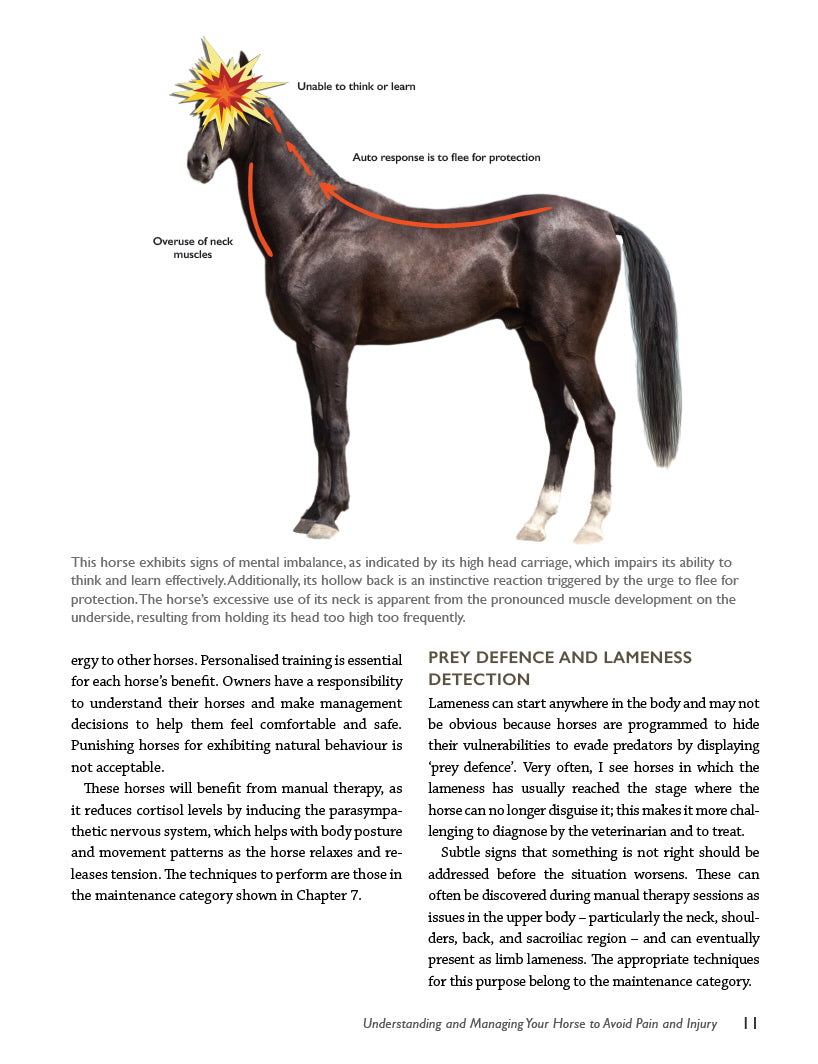Managing Horses with Chronic Pain: A Comprehensive Guide

Chronic pain in horses is a complex and often challenging condition that requires careful management to ensure the animal’s quality of life. This article explores effective strategies for recognizing, treating, and managing chronic pain in horses, providing valuable insights for horse owners, veterinarians, and equine caregivers.
Understanding Chronic Pain in Horses
Chronic pain is persistent pain that lasts beyond the usual course of an acute illness or injury. In horses, it can result from conditions such as arthritis, laminitis, back problems, or nerve damage.
| Common Causes of Chronic Pain in Horses | Description |
|---|---|
| Arthritis | Degeneration of joint cartilage causing stiffness and pain |
| Laminitis | Inflammation of the hoof’s sensitive laminae leading to severe pain |
| Back Problems | Muscle strain or vertebral issues causing discomfort |
| Nerve Damage | Injury or disease affecting nerve function |
Recognizing Signs of Chronic Pain
Horses often mask pain, making it essential to observe subtle behavioral and physical signs:
- Changes in gait or reluctance to move
- Decreased performance or willingness to work
- Altered posture or stance
- Behavioral changes such as irritability or withdrawal
- Weight loss or poor coat condition
Management Strategies
Veterinary Care
Regular veterinary assessments are crucial. Treatment may include:
- Pain relief medications (NSAIDs, corticosteroids)
- Joint supplements (glucosamine, chondroitin)
- Physical therapy and rehabilitation
- Diagnostic imaging to monitor progression
Environmental and Lifestyle Adjustments
Creating a comfortable environment can alleviate pain:
- Soft bedding to reduce pressure on joints
- Controlled exercise to maintain mobility without overexertion
- Proper hoof care to prevent secondary issues
Alternative Therapies
Complementary treatments can support pain management:
- Acupuncture
- Chiropractic care
- Massage therapy
Nutrition and Supplements
A balanced diet supports overall health and may reduce inflammation. Supplements such as omega-3 fatty acids and antioxidants can be beneficial.
FAQ: Managing Horses with Chronic Pain
Q1: How can I tell if my horse is in chronic pain?
A: Look for subtle signs like changes in behavior, movement, and posture. Regular veterinary check-ups are essential.
Q2: Are there long-term medications safe for horses?
A: Yes, but they must be prescribed and monitored by a veterinarian to avoid side effects.
Q3: Can exercise help manage chronic pain?
A: Controlled, low-impact exercise can maintain joint mobility and muscle strength.
Q4: What role does diet play in pain management?
A: Proper nutrition supports healing and can reduce inflammation, aiding pain control.
Managing chronic pain in horses requires a holistic approach combining medical treatment, environmental care, and attentive observation. With the right strategies, horse owners can significantly improve their animals’ comfort and quality of life.
